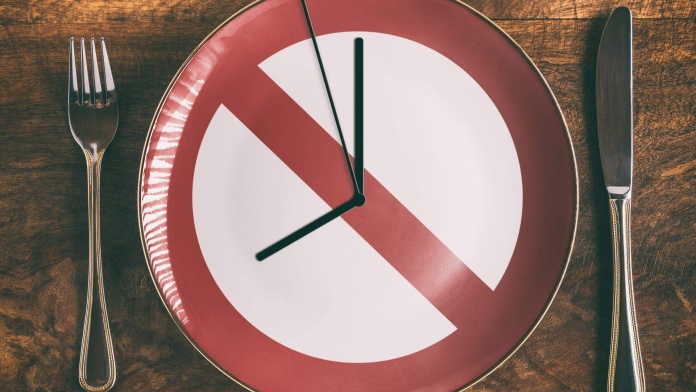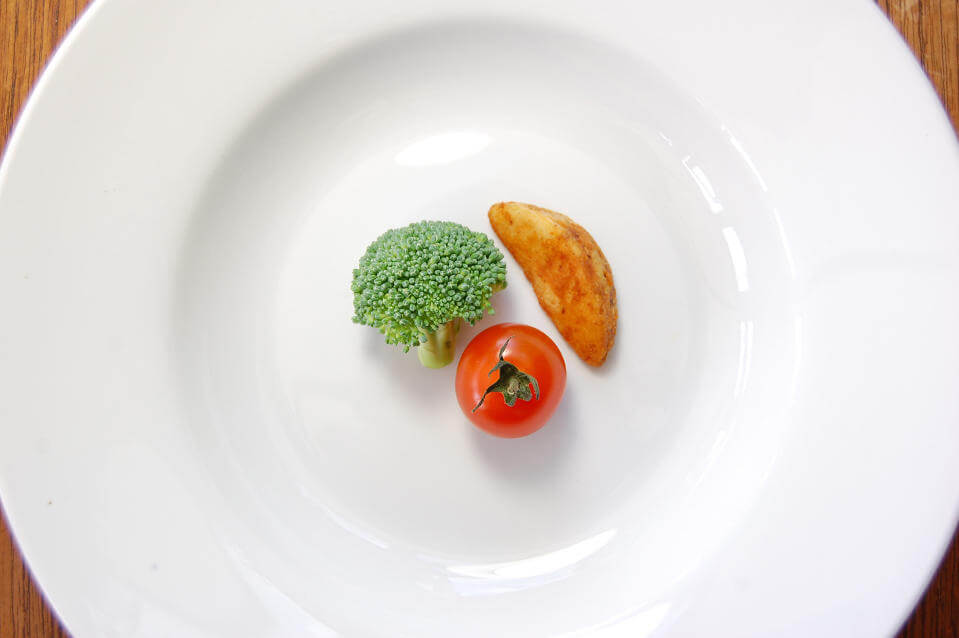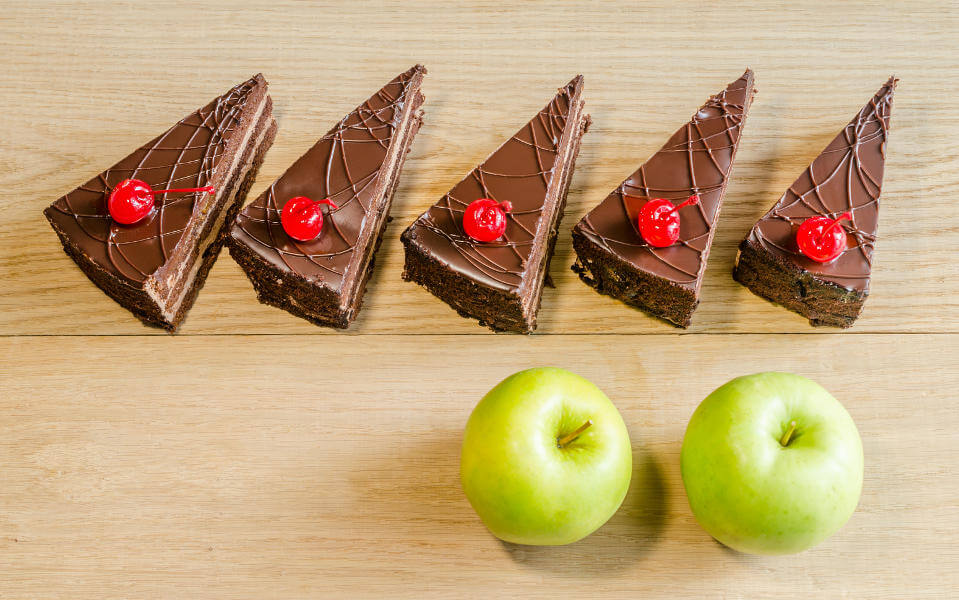
Why do intermittent fasting? Here’s why with science
Celebrities are a strange breed and, for some reason, when we read about a celebrity doing a thing, no matter how ludicrous or potentially dangerous it could be we swallow it hook line and sinker. Why? How is it that the general public will pay attention to something that a celebrity endorses but ignore the advice of an expert in that field? Shaq O’Neal says the earth is flat so the earth must be flat, right? OK, maybe not that but when actor Terry Crews released a video extolling the virtues of intermittent fasting (IF) everyone was on that bandwagon quicker than you could say Caesar.
A quick google search will throw up a bunch of celebrity names affiliated with intermittent fasting. Hugh Jackman, Beyonce, Liv Tyler and Ben Affleck are just a few of the names I came across. Now, because it’s Hollywood and they love a fad these individuals often combine IF with low carb diets because, apparently Hollywood trainers are about 5 years behind the rest of the fitness world. It was only a few years ago when it seemed that every gym bro in the world was furiously blending 100g of saturated fat into their coffee because no ever got ripped and lean before that was a thing (#sarcasm). But, let’s give them the benefit of the doubt. Movie stars often have to get great results very quickly and might not necessarily have the headspace for tracking calories. Think about it, if they have a script to learn, a character to evolve into and all the emotional energy that takes, maybe a few weeks of IF and low or cyclically low carbohydrate dieting is the best way for them to get the physique they need for that role.
But, does that then mean that because Hugh Jackman used IF to get ripped for Logan that you should do it too? The most popular method seems to be the 16:8 and Hugh has even mentioned using BCAAs and ‘bullet proof’ coffee during fasted workouts. I’ll get into that in a bit.
What is IF?
Basically, IF is a means of reducing calorie intake, or increasing per-meal portion sizes for the same given calorie intake by not eating for a period of time. The main methods are as follows:
- 24-hour fast – Eat nothing for an entire day. Basically, eat Dinner and then eat nothing until DInner the next day.
- 5:2 or The Faster Diet – Eat what you like (Supposedly within reason) on 5 days and have less than 600kcal on 2 days.
- The Warrior Diet – Fast for 20 hours and have one big feed in the evening.
- Lean Gains – a 16 hour fast and 8 hour feeding window (which is often adapted to a high fat, low carb diet).
All of these come with various faddy ad-ons that, when you look into it aren’t necessary at-all. The bullet proof coffee and BCAA thing, for example, is nonsense (context coming in a bit). But, one of the major health benefits associated with these diets is the benefit of a couple of natural processes called autophagy and apoptosis. If you aren’t familiar with these processes the following clips explain them in a brief and understandable manner.
Autophagy – YouTube Apoptosis – YouTube
Some of the purported benefits of these mechanisms include reduced rate of ageing, curtailment of IBS symptoms in sufferers, improved cognition, reduced risk of cancer, x-ray vision and self-teleportation… at least two of those things aren’t true.
The thing is, yes, automated cell death is upregulated during starvation and there may be some benefit to accelerating this through dietary intervention but, as far as I’m aware (and I’m no biochemist) most of the cancer research stuff has been done on rats or observed in epidemiological studies, where a thing is taken in vitro (usually a test tube or petri dish) and whereas these studies give us something to think about or, at least confirm that a mechanism occurs, this doesn’t provide proof that the same result will occur within the context of human physiology. You’re looking at one part of a cascade of events outside of the environment in which that cascade usually occurs. I’m not saying it’s all total nonsense but some of the health claims are wild and should mostly be taken with a pinch of salt. I mean, if it was that great then you wouldn’t be hearing about it from a Hollywood actor, you would be getting this from your doctor. However, fasting also increases fat oxidation, may increase glucose tolerance and reduce insulin resistance. It is also a great way to create an energy deficit if you are looking to lose some weight.
Is starvation healthy?

There are some other benefits to be had from IF that are often overlooked because they aren’t sensational enough. Appetite control is one such benefit. If you are a habitual snacker and that is why you struggle to lose weight then going without food for a period of time will teach you that A) you aren’t going to die if you skip a meal. B) that there is a big difference between true hunger and the desire to snack.
When you aren’t taking in exogenous energy sources your body has to get that energy from somewhere and so your energy pathways switch to oxidising fat. This doesn’t mean that you will burn more body fat while fasting, you still have to be in an energy deficit for that, but it may make it a little easier to reduce body fat while in that deficit. It also means that while you are tapping into the deca-thousand or so kilo calories from those fat stores that you will likely feel less need to eat. So, is it the fat oxidation or the energy deficit or both that makes IF a useful weight loss tool? Who cares so long as it’s working? Whatever it is, it’s safe to say that it’s not dangerous to skip breakfast a couple of times per week.
There is some evidence that people who don’t like to eat breakfast who are forced to eat a breakfast will then go on to eat more throughout the day as a result. Mostly these people just feel a bit sick trying to force something down them first thing, so if this is you don’t worry about breakfast.
IF sounds amazing are there any cons?
I’m glad you asked (yeah, I know I was talking to myself, I do that a lot). Implementation is very important. The recommendation for the 5:2 diet is to eat 600kcals (salmon and broccoli or something like that) on your ‘fasting’ days and then eat what you like on the other 5 days. Clearly, for some people this gives all the wrong signals. Stuffing yourself with pizza, ice cream, doughnuts, biscuits, frappuccinos, bottles of wine and mum’s entire apple crumble just because you can will obviously lead to you going into a chronic energy surplus and not losing any weight. It will also probably give you diabetes.
Food is a special thing and there is so much more to it than just calories and macros. Food is emotional and social and a lot of people develop emotional disorders around food. IF has been shown to feed into this for some people and some, who hadn’t previously displayed any level of disordered eating developed just that while following fasting protocols.
Obsessive, compulsive attitudes to food, food anxiety and binge eating have all occurred in some recorded cases. just take a look on some of the 5:2 forums and you’ll see some of the borderline crazy ‘sufferers’ on there. Basically, if you can’t control yourself and don’t feel happy or relaxed doing it then for goodness sake do something else. I don’t care if Beyonce did it, Beyonce is a twat (yeah, I said it).
It has been mentioned in the past that women shouldn’t do IF. Why? Because it could place the body under extra physiological stress and women tend to put themselves under more pressure, especially where body composition is involved. At least that is the opinion of some. If you ask me, most physique conscious people pile unnecessary pressure on themselves to achieve a certain aesthetic and that isn’t unique to one gender or the other. There’s enough research on adult human populations during Ramadan to prove that fasting isn’t uniquely bad for females and that even female athletes can still thrive during Ramadan. However, pregnant and breastfeeding women should almost certainly abstain from fasting for obvious reasons.
Does intermittent fasting help build muscle?
This was part of the appeal of the leangains program, my issue with that is that if you have to consume saturated fats and BCAAs to train while fasted then you technically are no longer fasting so what’s the point? Just eat breakfast!
Looking at some of the recent literature and we can see that even though IF isn’t theoretically optimal for muscle gain, it’s also not a complete no-no. Generally, MPS is stimulated by the consumption of at least 25g of leucine rich protein and the best effect comes from pulsing this every 3-4 hours or so. Not doing that will more than likely leave some gains on the table if you’re trying to add mass. However, it does appear that during caloric restriction, muscle catabolism doesn’t occur at a significantly faster rate for those who follow a 16:8 protocol so long as their calories and macros are hit during the 8-hour feeding period and they are doing resistance training.
Our results suggest that an intermittent fasting program in which all calories are consumed in an 8-hour window each day, in conjunction with resistance training, could improve some health-related biomarkers, decrease fat mass, and maintain muscle mass in resistance-trained males. By Moro, Tinsley, Bianco 2016
The retained muscle mass – by the way – would be as a result of the resistance training. It’s not that the IF protocol helped them keep muscle, it’s just that they didn’t lose their gains while fasting, that’s all.
The Troy method – Intermittently Fast like a Jedi master
Right, let’s look at the practical implications. If this is something that you are interested in trying make it simple, I have experimented enough with IF myself to know that you don’t need BCAAs or bullet proof coffee or exogenous ketone bodies, you just need to be sensible.
First of all, you need to be organised, I recommend adopting the 16:8 method but if one of the other protocols fits your lifestyle and schedule better then, just do that instead. If you are aiming for a minimum 16-hour fast have your last meal around 19:30 and plan your ‘breakfast’ for 12:00 the next day, that’s 16-hours, it can be longer if you like and that might work well on non-training days but if you are training then stick to the shorter fast. Either way, you need to make sure that your ‘breakfast’ (it’s technically lunch but you know what I mean) is nutrient dense with a good portion of protein, carbs, some healthy fats and a good helping of veg. Standard fayre to be honest. You can, of course, track your calories and macros as per usual but I don’t, which is why I use fasting in the first place. Counting calories stresses me out and I have both a good understanding of the composition of food and am quite an intuitive person so don’t really need all those numbers cluttering up my brain, more room for Star Wars trivia, you see.
Ideally, you will have three good meals during your 8-hour feed window, about every 3 hours is good and this will prevent you from snacking unnecessarily too. If you are clever you can even measure your food to ensure you are still hitting your macros, like a proper Instagram fit pro.

Pick the amount of days you are going to fast. It might be on your two (for example) recovery days, or you might fast 5 days per week, say Monday to Friday and give yourself the weekend off where you can relax things a tiny bit and enjoy a cooked breakfast or two. I don’t see any harm in doing it 7 days per week and this might actually help you feel less hunger during the food-less morning, but then Sunday loses all its appeal and there is no longer any incentive to get out of bed.
You can, if you like train while fasted, just make sure you stay adequately hydrated. If your exercise performance is affected, and the higher the intensity and volume of your training sessions the more likely that is to be the case then moving your training to later in the day will need to happen, or you just accept that IF ain’t for you. Personally, I can train quite hard in the morning and then go through until lunch/breakfast. But, if I slept poorly or feel a little under recovered then I’ll either train later in the day or train just before lunch. You might like to wait until 12:00 (if that is the end of your 16-hour fast) have a little snack like a banana and an electrolyte drink, train and then eat. Whatever works for you.
Cardio works well here. A morning steady state cardio session (maybe you cycle to work) is a nice complement seeing as you are already oxidising fat quite well at this point so why then go and stimulate the wrong energy system?
(I should mention that research now shows that skipping breakfast generally leads to reduction in athletic output through the day, so if exercise or sports performance is important to you (during the race/match/competition season) don’t do it on those high-performance days.)
In short, do what works best for you but if you want to get ripped like Hugh you’ll be better off training during your 8-hour feeding window because your workout will be much more effective. Being fasted, incidentally, increases one’s rate of perceived exertion so you might feel like you are smashing it but you’re actually not, you’re just knackered.
I think that’s about it, really. It’s not as complicated as most people think. It’s not a miraculous method, it just works quite well for some people. If it doesn’t work well for you then change it, there are so many tools at your disposal for achieving optimal health and performance so it just makes sense to use the one(s) that fit your lifestyle and personality the best. I think Yoda said it best:
Fast or Fast not, there is no one size fits all approach to health and fitness.
Love reading and learning about nutrition? There are a ton of things you can learn in this field, which makes it a really exciting thing to explore, but where do you start?
Look no further than our FREE, NO STRINGS ATTACHED 5 day nutrition course! All we ask for is 20 minutes of your time per day for the next 5 days, and by the end you’ll be armed with more evidence based knowledge that you can apply straight away in your life or that of people you know.
If that sounds good to you, all you need to do is scroll down and drop your details in the orange box…
References
- Alirezaei M, Kemball CC, Flynn CT, Wood MR, Whitton JL, Kiosses WB. Short-term fasting induces profound neuronal autophagy. Autophagy. 2010;6(6):702-710. doi:10.4161/auto.6.6.12376.
- Longo VD, Mattson MP. Fasting: Molecular Mechanisms and Clinical Applications. Cell metabolism. 2014;19(2):181-192. doi:10.1016/j.cmet.2013.12.008.
- Anton S, Leeuwenburgh C. Fasting or caloric restriction for Healthy Aging. Experimental gerontology. 2013;48(10):1003-1005. doi:10.1016/j.exger.2013.04.011.
- Gotthardt, J., Verpeut, J., Yeomans, B., Yang, J., Yasrebi, A., Roepke, T. and Bello, N. (2016). Intermittent Fasting Promotes Fat Loss With Lean Mass Retention, Increased Hypothalamic Norepinephrine Content, and Increased Neuropeptide Y Gene Expression in Diet-Induced Obese Male Mice. Endocrinology, 157(2), pp.679-691.
- Collier R. Intermittent fasting: the science of going without. CMAJâ¯: Canadian Medical Association Journal. 2013;185(9):E363-E364. doi:10.1503/cmaj.109-4451.
- Wegman MP, Guo MH, Bennion DM, et al. Practicality of Intermittent Fasting in Humans and its Effect on Oxidative Stress and Genes Related to Aging and Metabolism. Rejuvenation Research. 2015;18(2):162-172. doi:10.1089/rej.2014.1624.
- Hayward S, Outlaw J, Urbina S, et al. Effects of intermittent fasting on markers of body composition and mood state. Journal of the International Society of Sports Nutrition. 2014;11(Suppl 1):P25. doi:10.1186/1550-2783-11-S1-P25.
- Memari A-H, Kordi R, Panahi N, Nikookar LR, Abdollahi M, Akbarnejad A. Effect of Ramadan Fasting on Body Composition and Physical Performance in Female Athletes. Asian Journal of Sports Medicine. 2011;2(3):161-166.
- Norouzy, A., Salehi, M., Philippou, E., Arabi, H., Shiva, F., Mehrnoosh, S., Mohajeri, S., Mohajeri, S., Motaghedi Larijani, A. and Nematy, M. (2013). Effect of fasting in Ramadan on body composition and nutritional intake: a prospective study. Journal of Human Nutrition and Dietetics, 26, pp.97-104.
- Moro T, Tinsley G, Bianco A, et al. Effects of eight weeks of time-restricted feeding (16/8) on basal metabolism, maximal strength, body composition, inflammation, and cardiovascular risk factors in resistance-trained males. Journal of Translational Medicine. 2016;14:290. doi:10.1186/s12967-016-1044-0.